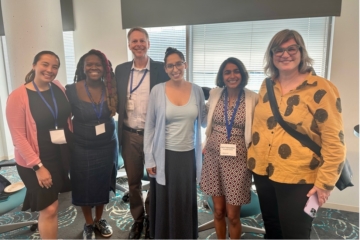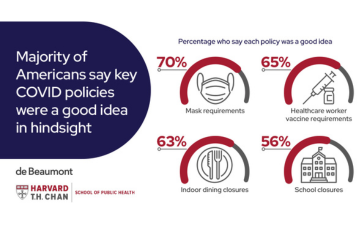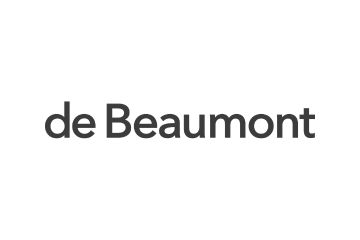According to the results of this year’s PH WINS survey, the public health workforce is highly motivated and engaged: 94% of respondents believe the work they do is important, and 93% are determined to give their best effort at work every day. But at the same time, the survey revealed high levels of stress, burnout, and intent to leave – potentially threatening communities’ health and well-being for years to come.
With this backdrop of collective stress, the de Beaumont 40 Under 40 Program held a workshop this month on Overcoming Workplace Burnout: Helping Employees and Leaders Enhance Resilience, Well-being, and THRIVE. “Because you are leaders and high achievers, you are often among the first to be burned out,” said workshop facilitator AJ Adams, MAPP, Founder and CEO of Brio Training & Consulting. “You may not realize until too late when you’re running out of steam.”
The COVID-19 pandemic – along with its unrelenting sense of urgency and constant surprises – caused many of us to feel overwhelmed and under-resourced in our jobs. Now, as the pandemic starts to taper off, that feeling isn’t going away. “We’re continuing to experience change fatigue,” said 40 Under 40 member Janna Pastir, MPH. “We went into ‘response mode’ while doing our regular jobs at the start of the pandemic, and now we’re transitioning back to our normal roles but with more expectations.”
Transforming Workplace Culture through Micro-Changes
Across the country, leaders and HR departments have grappled with the effects of the pandemic on their employees’ well-being, and many instituted well-meaning initiatives that ultimately fell short. Often, such programs focused on individual actions and responsibilities, without addressing the practices, policies, and other elements of a workplace’s culture that caused stress and burnout in the first place.
Small, targeted changes within a team can help to change a bigger organizational culture, AJ explained. Workshop participants – many of whom are team leaders – explored small changes that can improve aspects of workplace culture, such as ways to create psychological safety and productively navigate negative emotions.
Together, these strategies comprise Brio’s THRIVE framework to prevent burnout and promote well-being. The framework includes:
- T: Tools and training to build individual and team resilience
- H: A healthy culture embedding practices and policies that amplify employee well-being
- R: Relationships and high-quality connections within teams and across leadership
- I: Integration and inclusivity, leveraging tools, practices, and policies in a way that supports everyone’s well-being needs
- V: Voicing appreciation, giving recognition, and elevating the employee voice
- E: Enhancing employee engagement and energy by increasing job resources
“Part of the framework includes looking at your resiliency, specifically cognitive and emotional,” said 40 Under 40 member James Rajotte, MSL. “Within the workplace, I have used Clifton Strengths by Gallup to best understand my cognitive and emotional abilities by knowing, practicing, and using my strengths. This has come in handy for understanding what tasks I can complete, what I need others for, and how to build an effective team to best distribute the workload.”
The Importance of Setting and Communicating Boundaries
In the long term, individual resilience can create stronger, more effective, and happier teams – and setting and maintaining clear boundaries is an important part of that, AJ explained. “It’s okay to give, but you have to protect yourself in the process.”
But even if many of us know instinctively where our boundaries are, communicating them to others and responding when they are breached can be challenging. Workshop participants spent time identifying their own boundaries and working through a practice script for sharing them with colleagues.
“Nurses are constantly giving and putting our patients’ health and safety above our own, and boundaries with work and life are critical to avoid burnout,” said 40 Under 40 member Gloria E. Barrera, MSN, RN, PEL-CSN. “Using the train-the-trainer method and applying what I’ve learned from the THRIVE framework, I will be presenting on self-care to novice nurses by partnering with ANA-Illinois for a Novice Nurse Bootcamp in August.”
Additional Resources
For more guidance on overcoming burnout and promoting workplace well-being, explore the Health Action Alliance’s newly published Workplace Mental Health Playbook, a comprehensive guide to support the mental health of employees. Additional resources include: Positivity by Barbara Fredrickson, The Fearless Organization by Amy Edmondson, and Mindset by Carol Dweck.




